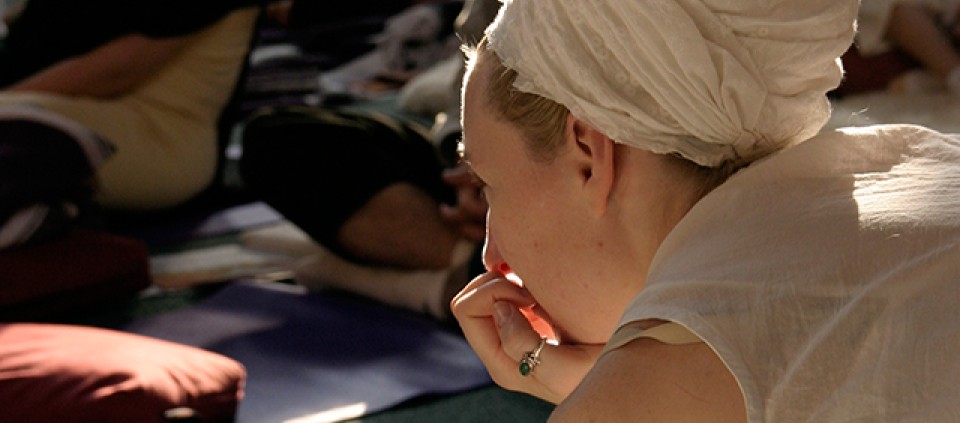Why Colette Baron-Reid Doesn't Call Herself a Psychic

by Reyna Eisenstark
For the past several years, my New Year’s resolution has been the same: to pay attention. This sounds pretty straightforward, until you really think about what it means. To me, paying attention means trying to notice everything, and sometimes this means noticing things you don’t want to see. We tend to ignore thoughts we don’t find logical or reasonable, disregarding them as mere feelings. But what if we didn’t ignore those feelings? What if we really paid attention?
Colette Baron-Reid, intuitive counselor, life strategist, educator, and best-selling author, has been paying attention for the past 23 years. She has advised more than 50,000 clients all over the world. Watkins Books (London’s oldest esoteric bookshop) voted her one of the 100 most spiritually influential living people in 2013.
When I was a college freshman, I took a women’s self-defense class, in which the teacher told us that she was reminding us of things we intuitively knew but had to be shown. She had us practice kicking so that our bodies would simply remember what to do if we were ever in dangerous circumstances. This is essentially what Colette does, too. She believes that we are all born with intuition, but some of us need to be shown how to use it, simply by expanding our awareness, or “removing the blocks to the truth,” as she puts it. In her workshops and individualized counseling, she helps people “understand where they are, how they got there, and where they are heading.”
Colette has a particular aptitude for intuition, a heightened sensitivity. She pointed out to me that intuition means paying peripheral attention, which I spent days thinking about after our conversation. It reminds me of what happens sometimes with a wide-angle shot in a movie. Your eyes tend to slip into the corners of the screen, and you might notice things you didn’t see at first. This can make you feel uneasy if the shot goes on for a while, because you’re not really sure where to look. Colette goes into these corners deliberately. For her, this is where the answers lie.
Not surprisingly, she hates the term “psychic,” presumably because of what people picture when they hear it (head scarf, dangling earrings, crystal ball). Nor is she a “fortune teller,” because she isn’t interested in telling people about their future. “I’m interested,” she told me, “in what makes people choose their reality and how they can transform it.” She reminded me that the oracle at Delphi is inscribed with the words “Know thyself”—“It doesn’t say, ‘Come get your fortune told!’”
Colette wants to help people “own their greatest desires and put them into action” so they can effect real change in their lives. “We create our own reality,” she explained, “but we have to surrender to life on life’s terms.” This simply means that you can have the best of intentions, but sometimes reality, with its unexpected obstacles, can really trip you up. But if you’re truly honest with yourself about your greatest desires, Colette says, you can learn how to put them into action.
Reyna Eisenstark is a freelance writer living in Chatham, New York. She writes about paying attention, in all areas of life, in her blog.